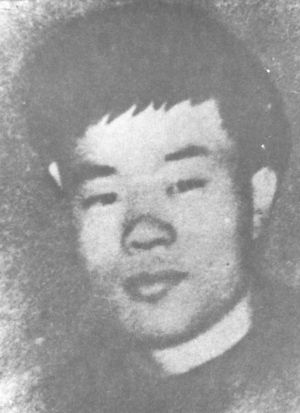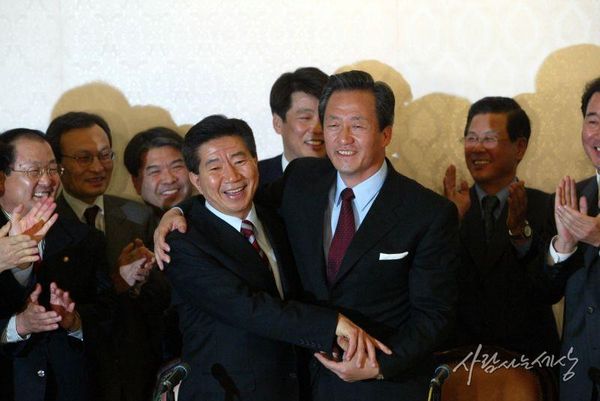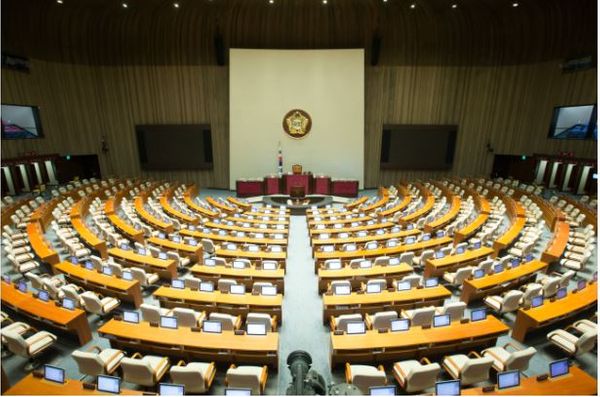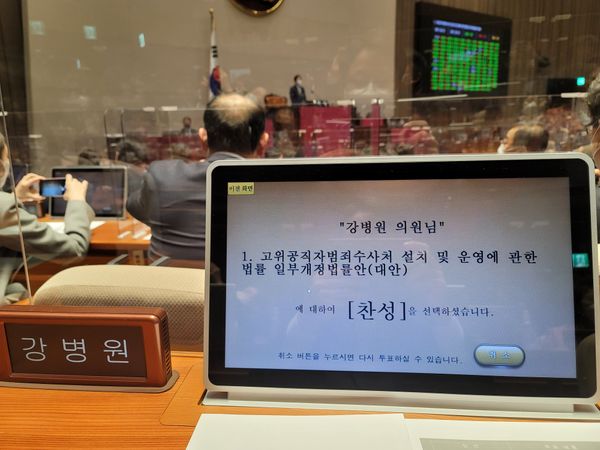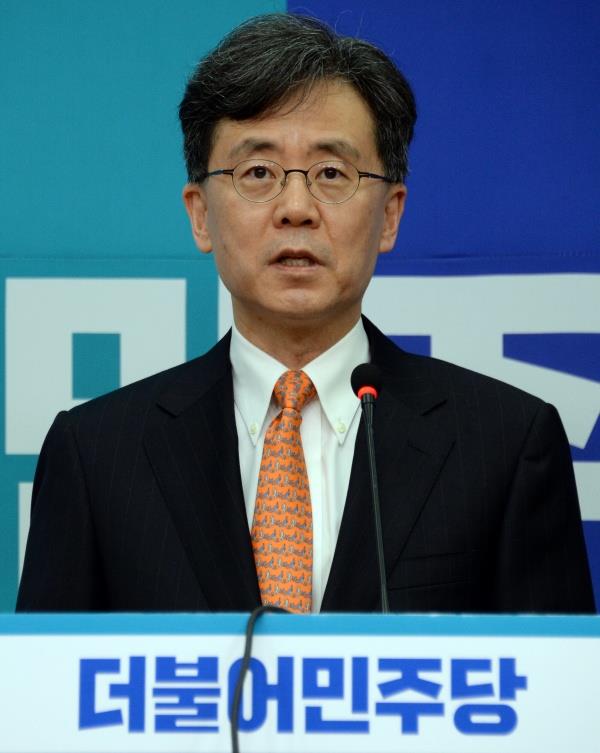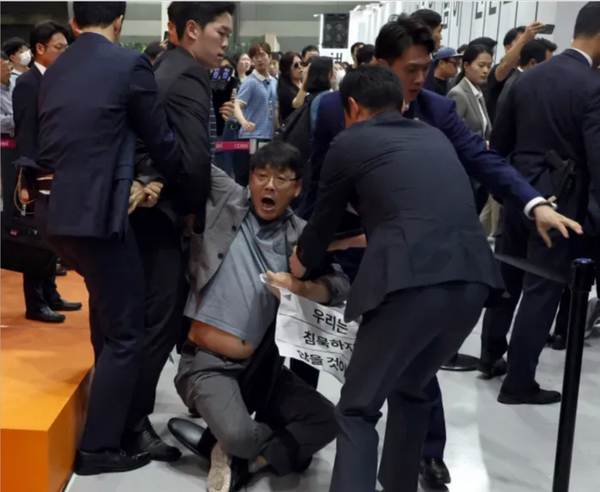Photo: Jeon Tae-il. Credit: Jeon Tae-il Foundation.
“Follow the Labor Standards Act! We are not machines! Let us rest on Sundays! Stop abusing the workers!” 근로기준법을 준수하라! 우리는 기계가 아니다! 일요일은 쉬게하라! 노동자들을 혹사하지 말라!
These words, arguably the most famous phrases in South Korea’s labor movement, were the last words of Jeon Tae-il 전태일 as his body burned in the middle of Pyeonghwa Market 평화시장 in Seoul on November 13, 1970. Jeon dropped out of school in fourth grade, and began working at age 17 as a tailor in the textile sweatshops in Seoul’s Cheonggyecheon 청계천 district (which today is filled with glass-and-steel skyscrapers.) Appalled by the labor conditions, Jeon taught himself labor law and began organizing the sweatshop workers. After the Park Chung-hee 박정희 dictatorship began cracking down on his organization, Jeon staged a “funerary pyre” for the Labor Standards Act 근로기준법, which at that time existed only in theory, and ended his life in the fire. When comrades rushed Jeon to the hospital, several hospitals turned him away as they feared government retribution. Yi So-seon 이소선, Jeon Tae-il’s mother, held up her son’s sacrifice as a galvanizing force for labor organization. Shortly after Jeon’s death, Yi helped establish the Cheonggye Textile Labor Union 청계피복노동조합, which became the leading labor union of the Seoul area. More than 2,500 labor unions were organized in South Korea during the 1970s.
The unions grew into a significant force in South Korea’s democracy movement, battling Korea’s budding chaebol 재벌 conglomerates that allied with the military dictatorship to profit from sweatshop labor. In the YH Incident YH 사건 of August 1979, the young women workers of YH Trading YH 무역, a major wig exporter, began a protest after the company shuttered without paying its employees. The police cracked down on the protest, in the process killing one worker and injuring dozens. Among those arrested for this incident was the future president Kim Young-sam 김영삼, then a prominent opposition leader who was accused of assisting the protesters.
The imprisonment of Kim led to the massive Bu-Ma Protests 부마항쟁 in the southern industrial cities of Busan 부산 and Masan 마산 in October. Military dictator Park Chung-hee 박정희 plotted a wholesale massacre to suppress the protests, with his security chief Cha Ji-cheol 차지철 egging him on by noting that Pol Pot of Cambodia had gotten away with killing 3 million civilians. Alarmed by the idea, Kim Jae-gyu 김재규, then head of the Korean Central Intelligence Agency 중앙정보부, assassinated Park on October 26, 1979, ending his 17-year rule. Although the Chun Doo-hwan 전두환 dictatorship quickly followed, labor unions remained an active force in the democracy movement, playing a major role in the June Struggle 6월 항쟁 in 1987 that transitioned South Korea to liberal democracy once and for all. On the 50 year anniversary of Jeon’s death, President Moon Jae-in 문재인 posthumously awarded the labor activist the Mugunghwa Medal 무궁화장, the highest civilian honor in the Republic of Korea.
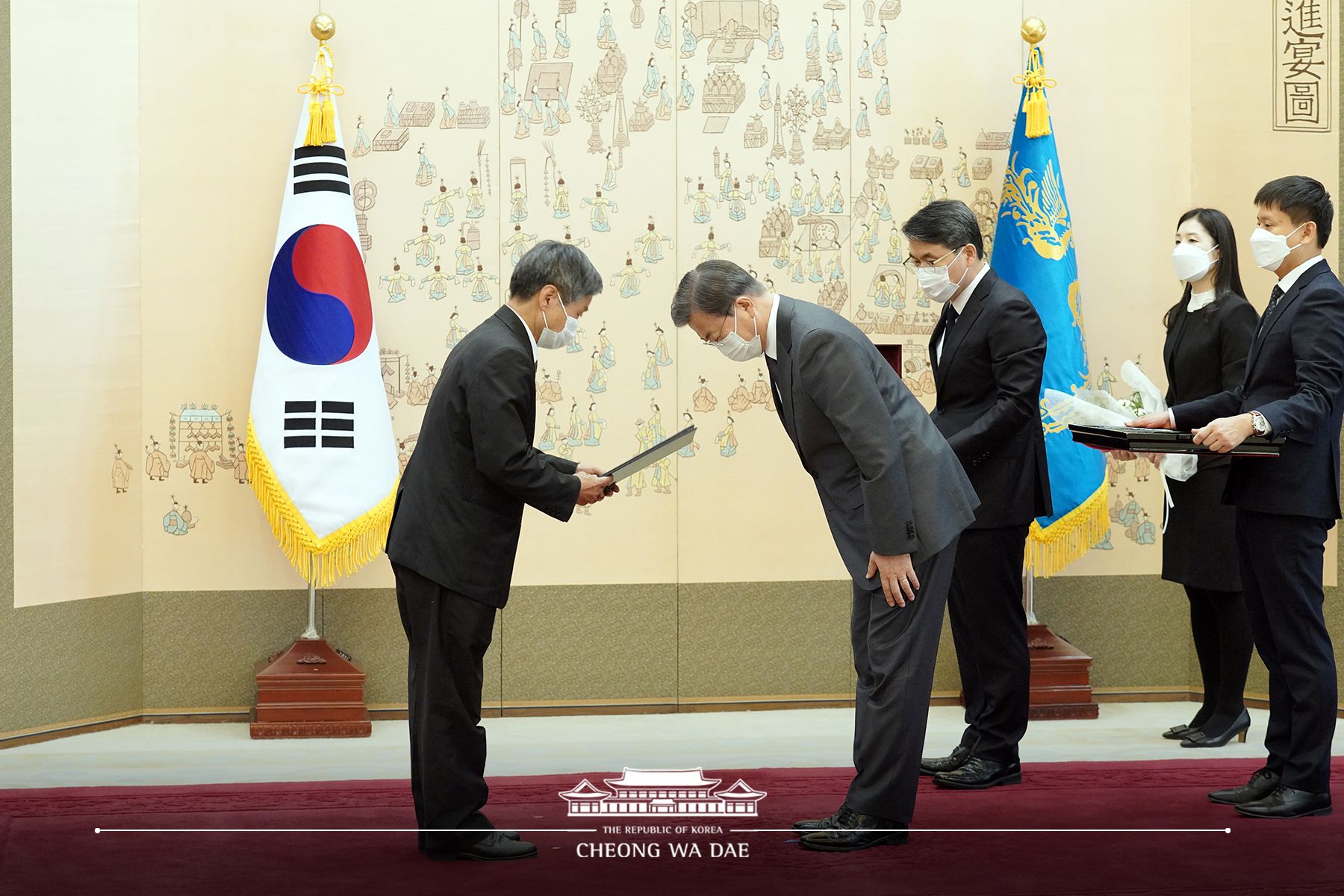
Photo: President Moon Jae-in (right) bows to Jeon Tae-sam, brother of Jeon Tae-il who received the posthumously received the Mugunghwa Medal. Credit: Website of the Office of the President.
Today, most labor unions in South Korea are organized under two umbrella organizations: Korean Federation of Trade Unions (KFTU) 전국민주노동조합총연맹 (민노총) and Federation of Korean Trade Unions (FKTU) 한국노동조합총연맹 (한노총), each with approximately a million members. The more militant and left-wing KFTU has been a major force in South Korea’s progressive politics: at one point, its political arm, the Democratic Labor Party 민주노동당, was the third largest political party, peaking in influence with ten legislative seats in the 2004 Assembly elections. (One of those elected under the DLP ticket at the time was Sim Sang-jeong 심상정, who recently ended her tenure as the chairwoman of the Justice Party 정의당, the heir of DLP). The labor unions again played a large role in the impeachment and removal of the conservative president Park Geun-hye 박근혜, as the unions’ 2016 mass protest served as a precursor to the Candlelight Protests 촛불시위 later in that year.
But in terms of securing workers’ rights, South Korea’s labor movement still has a long way to go. As of 2018, only 11.8% of Korean workers were unionized - a far cry from northern European countries like Sweden (82%), and lower even than Japan (22%) and the United States (13%). Several major corporations, including South Korea’s largest Samsung Group 삼성그룹, openly boast about their lack of unions and crack down on any organization. In 2014, when labor activist and Samsung employee Yeom Ho-seok 염호석 committed suicide in protest of poor working conditions, Samsung, fearing Yeom would become the next Jeon Tae-il, went so far as to steal Yeom’s body to prevent Yeom from receiving a labor union funeral as he had directed in his suicide note. Freelancers and gig workers, whose numbers are ever-increasing in the internet-based economy, do not receive union protection.
Union activists often complain that even the liberal governments under presidents Kim Dae-jung 김대중, Roh Moo-hyun 노무현 and Moon Jae-in 문재인 practiced neoliberal economic policies, weakening employment and wage stability while continuing to expose workers to hazardous conditions. On the other hand, the large labor unions like KFTU and FKTU are often criticized for only protecting their own when the interests of the unionized workers collide with non-unionized workers. For example, when the financially struggling city of Gwangju 광주 sought to attract new automobile factories to the area by promising lower wages, the auto workers’ union for Hyundai Motors 현대자동차 based in the city of Ulsan 울산 strenuously objected, fearing the new factory would undercut their plant.


